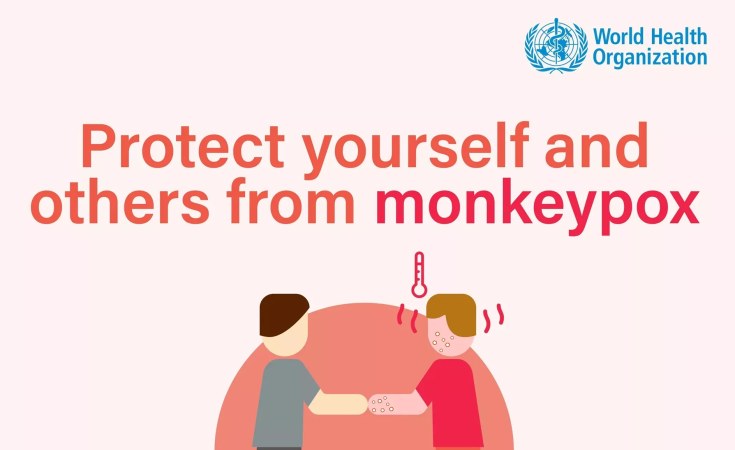The public has been advised by the Ministry of Health (MoH) to report any likely symptoms of Monkey Pox (MPox) to the nearest health facility to help contain the spread of the disease in the country.
The World Health Organisation says Mpox show symptoms like fever, chills and body aches.
However, people with more serious cases can develop lesions on the face, hands, chest and genitals.
First identified by scientists in 1958 among monkeys, Mpox is now a human disease as well and mostly found in people in central and West Africa who have close contact with infected animals.
Though not airborne, once contracted by humans, it is quickly spread through close, skin-to-skin contact, including kissing, touching, oral and penetrative sex.
When it comes to certain areas of life, the layman's view can be disastrous in the end, so only the expert views are helpful.
Before the MoH admonition, the Ghana Health Service (GHS) announced that it had heightened its surveillance and emergency response systems to quickly detect possible cases of Mpox, which had surged elsewhere in the West African sub-region.
Then it advised that when anyone had fever, nausea or muscle pain, the person should contact a health facility and have a test run and that if it did not confirm malaria, it could be some other disease, possibly Mpox, which would require specific treatment.
The GHS further advised that people having rashes should go to the hospital and run a test as that could give health professionals a clue where the virus was, so that they could follow it and be able to test people who had had contacts with the patient so the GHS would be able to contain the spread of the disease.
The Ghanaian Times thinks that all the pieces of advice about Mpox are in the interest of the general public.
That attitude of some members of the public rubbishing even expert advice and wishing away calamities such as they did with COVID-19 must stop.
Also, people who would have any of the symptoms suspected to prove a case of Mpox must not do self-medication.
Such people must immediately go to the nearest clinic or hospital for medical checks.
This is important because the disease which began as an endemic strain known as Clade 1 has now changed into a new variant called Clade 1 b, spreading more through routine contact, particularly among children and has so far affected over 15,000 people, and killed 461 in 18 countries, this year.
Although the country has not recorded any case this year, cases of Mpox in the last two years should warn every Ghanaian that it is possible for it to have cases if medical alerts are not followed.
From all indications, the health authorities in the country, spearheaded by the MoH and its major agency, the GHS, are doing all they can to contain the spread of Mpox to and in the country.
All they need is the support of the public while African countries wait for vaccines and other facilities to handle Mpox, including its treatment and prevention.
Just last week, precisely on August 14, the WHO declared Mpox a public health emergency, which means Mpox is serious, sudden, unusual, has implications for public health beyond where it originated from and requires immediate international action.
Even this alone should prompt adherence to the Mpox advice currently being given.


